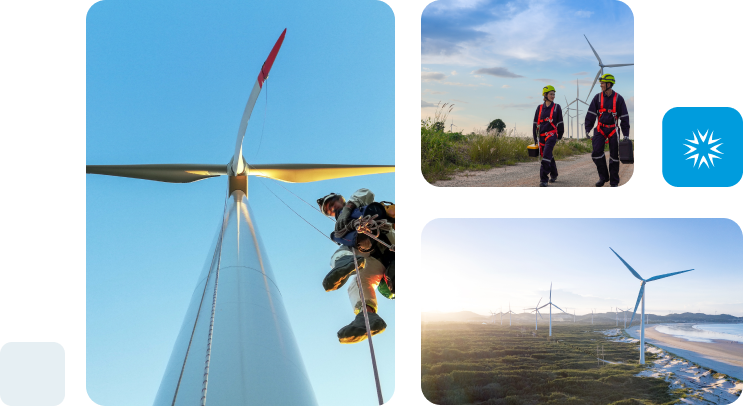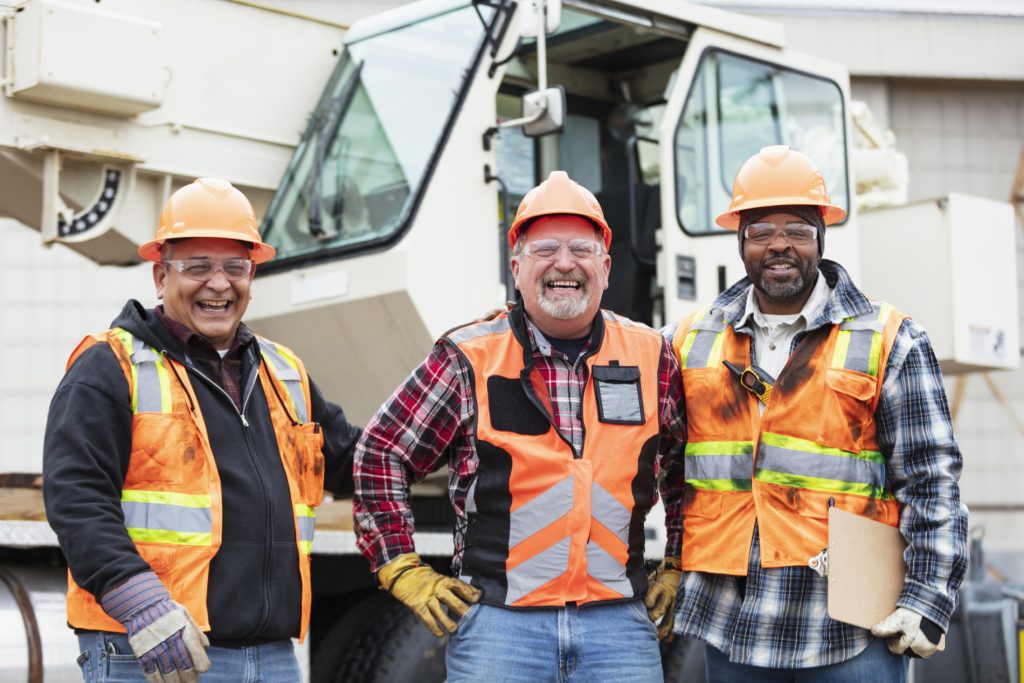Fuse Recruitment is trusted by top Australian companies











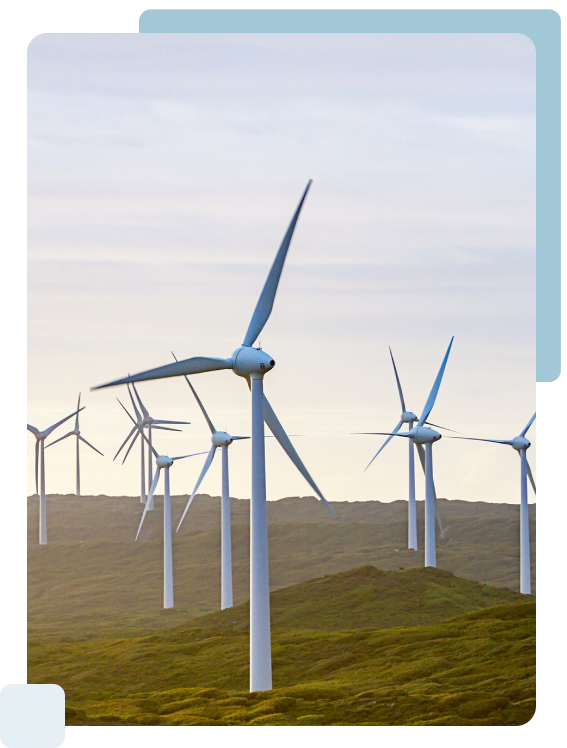
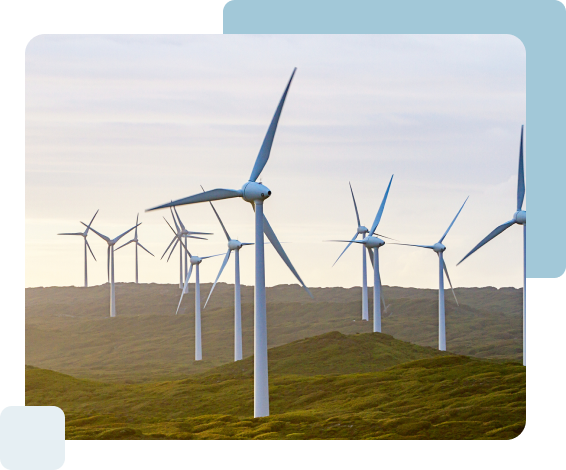
Recruiting for Australia’s Onshore and Offshore Wind Projects
As specialists in wind power recruitment, we bring extensive expertise to Australia’s renewable energy sector. Our team has a proven track record delivering talent for onshore and offshore wind farms. We understand this sector’s workforce demands and have successfully placed professionals ranging from wind turbine and blade technicians to wind energy engineers, site managers, and senior leaders.
Our experienced headhunting team leverages deep industry networks to source top talent for complex and large-scale renewable projects. Taking a consultative approach, we provide permanent, contract, and project-based solutions, ensuring every hire supports performance, compliance, and long-term success.
Roles we commonly recruit
Wind Turbine Technician
Wind Farm Technician
Wind Energy Engineer
Wind Farm Project Manager
Wind Farm Site Supervisor
Blade Technician
SCADA Engineer
SCADA & Automation Specialists
High-Voltage Technician
Electrical Engineer
Mechanical Engineer
Civil Engineer
SCADA Engineer
Grid Connection Engineer
Project Engineer
Structural Engineer
Site Manager
Project Manager
Development Manager
Renewable Energy Project Coordinator
Land Acquisition Manager
Environmental Consultant
HSE Manager
Grid Integration Specialist
Power Systems Engineer
Offshore Wind Technician
Sustainability Officer
Community Engagement Manager
General Manager – Renewable Energy
Procurement Specialist
Contracts Manager
Wind Turbine Technician
Wind Farm Technician
Wind Energy Engineer
Wind Farm Project Manager
Wind Farm Site Supervisor
Blade Technician
SCADA Engineer
High-Voltage Technician
Electrical Engineer
Mechanical Engineer
Civil Engineer
SCADA Engineer
Grid Connection Engineer
Project Engineer
Structural Engineer
Site Manager
Project Manager
Development Manager
Renewable Energy Project Coordinator
Land Acquisition Manager
Environmental Consultant
HSE Manager
Grid Integration Specialist
Power Systems Engineer
Offshore Wind Technician
Sustainability Officer
Community Engagement Manager
General Manager – Renewable Energy
Procurement Specialist
Contracts Manager
Meet our top talent
Project Director
With deep experience delivering complex ICT, SCADA, and industrial automation programs, this Project Director leads defence and infrastructure portfolios through cyber-compliant delivery, agile governance, and trusted executive stakeholder engagement in high-compliance environments.
Remedial Engineer
7+ years of Civil and remedial engineering experience, with strong grounding in geotechnical investigations, structural assessments, site diagnostics, and contract administration across major Australian infrastructure projects. With experience across airport, metro, motorway, and urban redevelopment works, with proficiency in subsurface investigations, soil and rock logging, construction quality assessments, and pavement design.
Contracts Administrator
With over 2 years of experience in contract administration within large-scale civil infrastructure projects across Western Sydney, this professional brings a strong understanding of contract compliance, cost control, and stakeholder coordination. Skilled in managing progress claims, variations, and subcontract negotiations, they contribute to smooth project delivery and accurate financial reporting.
Operations Manager
With over 15 years in construction, civil, and mining, this proven leader brings strong expertise in operations, workforce management, and client development. Skilled in overseeing multi-site projects, resource allocation, and subcontractor performance, they ensure safe, efficient, and profitable delivery across complex environments.
They currently manage regional operations, securing new business, strengthening client relationships, and optimising machinery and labour use to minimise downtime. Their proactive leadership style and commercial insight have consistently improved utilisation, safety performance, and service outcomes.
Fabrication Manager
With over 15 years of experience across fabrication, maintenance, and workshop management, this qualified Boilermaker brings extensive hands-on expertise in light to heavy fabrication, welding, and mechanical systems. Skilled in MIG, TIG, ARC, and flux core welding, he has led the manufacture, installation, and repair of equipment across industrial, agricultural, and water infrastructure projects.
Welding Supervisor
With over 18 years of hands-on and leadership experience in aluminium vessel construction, repair, and refit projects, this Welding Supervisor combines deep technical expertise with strong leadership, quality assurance, and project coordination capabilities. Skilled in supervising large fabrication teams, delivering complex builds on time and in line with stringent safety and compliance standards.
Trades Assistant
With over 15 years of experience supporting major infrastructure and mining projects across Australia, this candidate offers strong trade support skills, safety knowledge, and proven reliability.
Procurement & Inventory Specialist
Procurement and inventory specialist with experience in contracts administration, estimating, and project coordination across construction, manufacturing, and supply chain environments. Skilled in SAP, PIMS, and supply chain systems with strong stakeholder management and customer service expertise.
Senior Civil Engineer
With more than 15 years of experience across residential, remedial, and structural projects, this engineer brings strong expertise in project management, construction supervision, and defect investigation. Skilled in overseeing projects from design through to completion, they ensure compliance with NCC, Australian Standards, and WHS requirements while maintaining quality, safety, and client satisfaction.
Senior Construction Manager
With over three decades in construction and engineering, this QBCC-licensed Open Builder and Project Manager leads complex commercial, industrial, and infrastructure projects, combining contract law expertise, 3D/2D AutoCAD design, and in-depth compliance knowledge across NCC, BCA, and Australian Standards.
Senior Construction Manager
A QBCC Open Builder and Licensed Superintendent with 30+ years in commercial, industrial, and infrastructure projects, this professional combines deep expertise in NCC/BCA compliance, contract law, and $200M+ builds with hands-on mastery of 3D/2D AutoCAD design, stakeholder engagement, and full project lifecycle management.
Maintenance Technician
Skilled maintenance and construction professional with 13+ years of experience delivering high-quality repairs, managing trades and warranty works, and executing projects with precision, safety, and client satisfaction.
Safety and Compliance Officer
ISO- and CM3-certified Safety & Compliance Officer with 10+ years leading WHS programs, ICAM investigations, and multi-state team safety across industries.
Project Estimator
With over 9 years of experience in construction supervision and estimating, this Certificate II–qualified leader delivers on-time, cost-controlled projects with strong vendor and site management skills.
Project Engineer
7+ years of experience delivering civil, commercial, and residential construction projects, with expertise in estimation and contract administration.
Architectural Draftsperson
12+ years of experience in architectural drafting and detailing, specialising in steel framing, residential housing, and construction documentation.
Structural Engineer
Over 4 years delivering structural design and analysis across industrial, commercial, residential, and infrastructure projects.
Superintendent Engineer
With over 12 years of experience in mechanical engineering and project management, this candidate has built expertise across large‑scale mining operations.
Site Supervisor
20+ years of experience in construction supervision and project delivery, spanning commercial, health, defence, and large‑scale infrastructure projects.
Heavy Diesel Mechanic
Heavy Diesel Mechanic with over 10 years’ experience across mining, civil, haulage, and transport industries.
Laboratory and Materials Technician
Lab Technician with 10+ yrs in materials testing, geotech analysis, NATA reporting, AS standards, soil compaction, and client coordination across construction sites.
Civil Maintenance Worker/Civil Labourer
With 20+ years of experience in the civil industry, the candidate is highly skilled in operating and maintaining various machines and heavy vehicles, including bobcats, skid-steers, forklifts, rollers, front-end loaders, and MR and HR trucks.
Contracts Administrator/Site Supervisor
With 13+ years in the construction industry, the candidate has held diverse roles such as Contracts Administrator, Desktop Supervisor/Project Coordinator, and Customer Service Manager.
Project Administrator
With 10 years of experience as a Project Administrator in the civil infrastructure sector, the candidate has established a commendable reputation for excellence.
Procurement/Contract Administrator
With a background and extensive tenure working with industry leaders such as John Holland and Lendlease, the candidate is an expert in contract law, procurement, client relationship management, subcontractor negotiation, and commercial and financial analysis.
Project Engineer
The candidate brings 10+ years of experience working across civil, road, rail, earthworks and concrete projects and possesses a Bachelor’s in Architectural Engineering and a Master’s in Construction & Infrastructure Management.
Junior Estimator
With a solid background in tendering for TMR projects and FRP packages ranging from $1m-$15m, the candidate excels in first principal analysis and project management.
Senior Project Engineer
With 16+ years of extensive industry expertise in Australian roads and bridges, coupled with a Masters in Structural Engineering and a Bachelor of Civil Engineering, the candidate offers a wealth of knowledge in construction management and project engineering.
HR Truck Driver
With 15 years of entrepreneurial experience managing their own Tipper Truck business, the candidate brings a strong skill set and a proven track record in operations management and logistics.
Project Engineer
With 4+ years of experience in bulk earthworks, land development, and road and pavement projects, this results-oriented Civil Project Engineer specialises in land development, redevelopment, and small-scale infrastructure initiatives.
Civil Project Engineer
Experienced civil engineer with 3+ years in construction, including work on Rio Tinto Rail Renewal Project, skilled in OHS implementation and P&ID estimation.
Project Engineer
Experienced civil engineer accredited by Engineers Australia (NER) and Board of Professional Engineers of Queensland (RPEQ), skilled in project management.
Contracts Administrator/Site Supervisor
Experienced construction professional with 13+ years’ background in Contracts Admin, Desktop Supervision, and Customer Service Management, skilled in both domestic and commercial sectors.
Quantity Surveyor/Contract Administrator
Experienced construction professional skilled in stakeholder management, cost planning, and project oversight up to $500m, holding advanced degrees in Construction Management.
Commercial Manager
Experienced quantity surveyor and project manager proficient in managing diverse projects up to $600m, specializing in contract negotiation and cost management.
Site Manager
Construction industry expert with 40+ years’ experience specialising as a Foreman/Site Supervisor/Site Manager, adept in site operations and workplace health and safety.
Senior Project Engineer
Civil engineer with 10+ years of experience managing iconic projects, holding a Bachelor of Civil Engineering and PMP certification.
Installer/Assembler
Versatile professional with a Front End Loader Ticket and White Card, skilled in construction site duties, equipment operation, and warehousing.
Site Manager
Experienced in commercial construction and civil engineering with a QBCC Licence and expertise in industrial, high-rise, and hotel projects.
Senior Project Engineer
Experienced civil engineer with over 20 years in project delivery, planning, and commercial management, specialising in large infrastructure and rail projects.
Administration Assistant/Data Entry
Experienced Receptionist/Administrator adept in customer service and multitasking, with prior Executive Assistant experience, showcasing strong communication skills and attention to detail.
Project Manager
Seasoned civil engineer with 15+ years’ experience, holding Bachelor’s and Master’s degrees in Civil Engineering, skilled in diverse project aspects.
Leading Hand
Skilled horticulturalist with expertise in field supervision, colleague training, and client management.
Senior Project Engineer
Civil engineer with 10 years of experience and holds a Bachelor of Science in Mechanical Power Engineering, adept in design coordination, project management, and ensuring regulatory compliance.
Project Engineer
Civil engineer with 4+ years of experience, including roles at reputable companies, known for efficient project delivery and expertise in the utility sector.
Excavator Operator
Experienced civil excavation contractor equipped with a white card and a comprehensive range of tickets, boasting 6+ years of hands-on experience in heavy machinery operations, safety compliance, and project execution.
Senior Project Engineer
With 20+ years career at CPB and Decmil, this seasoned professional in civil and construction management, holding a Bachelor of Engineering, brings valuable expertise in successful project delivery.
Project Engineer
With over a decade in civil engineering, this professional excels in design review, collaboration, and problem-solving.
Senior Project Engineer
With 7+ years in construction management, this skilled Civil Engineer excels in technical aspects, asset control, and compliance across diverse projects.
Project Engineer
With a Bachelor’s in architectural engineering, a Master’s in construction & infrastructure management, and 10+ years of experience, this candidate excels in diverse projects, including a notable contribution to the prestigious Sydney Metro Project.
Senior Project Engineer
25+ years with industry leaders like Worley and Stantec, with a Bachelor’s in mechanical engineering and a Master’s in administrative studies, this seasoned professional excels in leadership and project management.
Senior Project Engineer
Bringing 20+ years in the civil industry with expertise in construction, project coordination, and safety adherence, this seasoned professional ensures excellence in project execution and compliance with industry standards.
Project Engineer
Bringing extensive experience in project management, this candidate has a proven track record of successfully delivering projects with budgets ranging from $100K to $300M.
Operations Manager/Project Director
With over 18 years of consulting experience, this candidate currently holds the position of Operations Manager at Aecom.
Senior Project Engineer
A Professional Engineer with 20 years of experience in the Water and Wastewater, Oil and Gas, and Petrochemical industries, this candidate possesses a background in project management, mechanical, and piping engineering.
Senior Associate Civil Engineer
With 15 years of experience as a Chartered Professional Engineer, this candidate has a robust track record spanning both New Zealand and Australia, focusing on land development and infrastructure projects.
Senior Planner
As the lead project engineer for the 10-year resleeping program in the Illawarra Relief and Eastern Suburbs Railway tunnel tracks, this candidate took charge of replacing old timber sleepers with half polymer blocks.
HR Driver/Labourer
With extensive interstate truck driving experience covering New South Wales, Queensland, and Victoria, this candidate brings a background from the underground gold mining industry.
HR Driver
With a wealth of experience in roles ranging from civil driver operator to field maintenance worker and front-end loader operator over several years, this candidate possesses a diverse skill set that includes operating heavy machinery like excavators, backhoes, loaders, and trucks.
Site Engineer
Having contributed to projects including the construction of a coal plant, an independent power plant, and the Dedisa Peaking Power Plant, this candidate carries experience as a Site/Project Engineer at Group Five, specialising in managing civil construction.
Admin Assistant and SAP Specialist
With a 4-year tenure at Accenture in Brazil, this candidate is a highly experienced administrator and SAP expert.
Civil Labourer
With an extensive background in Civil Labouring roles, this candidate is adept at tasks such as digging trenches, formwork, and concreting.
Civil Engineer
Having contributed to a variety of projects, including well-known attractions such as Currumbin Wildlife Sanctuary, Hometeams Waterpark in Singapore, Mandai Zoo, Dreamworld, Movie World, and Universal Studios in Japan, this candidate possesses a broad portfolio of experience.
Senior Electrical Project Engineer
An electrical engineer with experience in both consulting and construction businesses, this candidate brings a background in diverse projects, including level crossing removal, rail projects, wind farm tender design, and electrical services.
Environmental Advisor
With a background in field data collection and the evaluation of conservation techniques, this candidate holds a Masters of Sustainability with a specialisation in Environmental Management.
Planning Director
With a 30-year background in the Victorian planning and development industry, this candidate has operated in both public and private sectors, overseeing some of Victoria’s largest and most complex urban development projects.
Procurement Manager/Contracts Manager
A highly experienced procurement and contracts manager with a background in infrastructure and mining projects, currently employed with MCA Engineering.
Director/Senior Project Manager
With over 10 years of experience in construction and management roles, this candidate is proficient in concrete placement, civil drainage, project management, sales, and more.
General Manager
With over 10 years of experience in day-to-day business operations management, this candidate possesses a diverse skill set encompassing budgeting and forecasting, supply chain management, business development, project management, finance, and more.
Procurement Manager / Contracts Manager
A highly experienced procurement and contracts manager with a proven track record in infrastructure and mining projects, known for effective team support and mentorship, exceptional presentation and communication skills.
Operations Manager / Project Director
An accomplished Operations Manager at Aecom with 18+ years of experience in the consulting industry, known for consistently exceeding financial targets and fostering high staff engagement.
Senior Electrical Project Engineer
A versatile electrical engineer with diverse project experience in level crossing removal, rail, wind farm design, and electrical services.
Senior Planner
A pivotal lead project engineer in a 10-year resleeping program, with an impressive track record of managing $30 million annual projects, now serving as a Senior Planner with proficiency in software tools like Primavera (P6), MS Project, AutoCAD, and more.
Construction Manager
A seasoned professional with diverse industry experience, holding a Bachelor of Engineering (Civil), skilled in project management, engineering, safety, quality control, and subcontractor management, renowned for contributions to high-impact projects like Melbourne Airport Rail and Parkville Station.
Project Engineer
A versatile professional with 5+ years in construction, including roles as Graduate Geotechnical Engineer, Site Engineer, and Project Engineer, they’ve made significant contributions to high-profile projects, having a strong academic background with a Masters in Civil Engineering and a Bachelor’s in Civil Systems from the University of Melbourne.
Director
A highly experienced planning and property consultant with 18+ years of expertise, specialising in urban planning, project management, and strategic advice for top-tier developers and government bodies in Australia, skilled in VCAT and Panels Victoria representation.
Environmental Advisor
An experienced professional with expertise in field data collection, conservation techniques, and a strong academic background in sustainability and biological sciences, complemented by skills in risk assessment and hazard identification.
Site Manager
An accomplished professional with diverse construction project management experience, a Low Rise Supervisor License, and a skill set encompassing construction program creation, civil works oversight, heavy machinery operation, and structural inspection.
Site Engineer
A Site Engineer with hands-on experience in complex construction projects, infrastructure management expertise, and a strong educational background, currently contributing to the prestigious Fleurieu Connections Alliance Main South Road Duplication Stage 1 Project.
HR / MR Truck Driver
A candidate with a strong commitment to safety and compliance, licenses and certifications in various areas, hands-on experience in vehicle maintenance, exceptional versatility, effective communication skills, meticulous attention to detail, and a focus on precision and reliability.
Administrator / Training Coordinator
An experienced Administrator with a strong customer-centric focus, versatile technical proficiency, multiple qualifications, and exceptional communication skills.
Civil Engineer
A seasoned professional with an impressive project portfolio, including renowned attractions, and proficiency in a wide range of engineering and design software, distinguished by a strong work ethic, innovative problem-solving, and a commitment to excellence.
Project Engineer
A highly qualified candidate with multiple master’s degrees and prestigious certifications, boasting extensive experience across diverse construction projects, excelling in team management, technical guidance, cost control, quality, and safety, and proficient in project management software.
Civil Manager
An accomplished leader with a strong track record in both public and private sectors, offering expertise in strategic management, budget oversight, personnel management, and compliance.
Project Engineer
Skilled professional with technical expertise and relevant certifications, including a Bachelor of Engineering (Civil) and Cert 3 Steel Fabrication Welding, known for strong work ethic and interpersonal skills.
Project Manager
Experienced Project Manager with a decade of Civil Engineering expertise, skilled in project planning tools and committed to safety and excellence, poised to deliver successful projects for the team.
Senior Project Engineer
Experienced candidate with a strong background in construction and project management, ready to lead and innovate.
Environmental Advisor
Highly qualified candidate with extensive experience in environmental conservation and sustainability, combining practical skills with advanced degrees to lead environmentally responsible projects and enhance team success.
HR Driver / Labourer
Experienced interstate truck driver with licenses, strong safety commitment, and exceptional attention to detail, ready to enhance transportation operations.
HR / MR Truck Driver
Experienced and safety-focused candidate with licenses, prime mover, and trailer maintenance skills, ideal for enhancing transport and logistics operations.
Site Manager
Experienced Site Manager with a successful track record in Project Management and a strong focus on safety, ready to enhance efficiency and contribute to construction projects.
Civil Engineer
Proven professional with a portfolio including iconic projects (e.g., Currumbin Wildlife Sanctuary, Universal Studios Japan), adept in engineering software, known for a strong work ethic, creative problem-solving, and innovation.
Commercial Manager - Property Development
Experienced property development professional skilled in feasibility assessments, land acquisitions, project management, and site challenges for diverse developments with a client-centric approach.
Construction Manager
Experienced construction professional with a versatile skill set, extensive qualifications, and strong commitment to safety, known for effective leadership and successful project delivery.
Senior Project Manager
Experienced Senior Project Manager with a successful track record at ACOR Consultants and NSW Telco Authority, skilled in leading diverse teams and managing end-to-end projects across various sectors, ready to excel in challenging environments.
Project Engineer
Experienced candidate with a strong track record in multimillion-dollar projects, professional qualifications, and exceptional teamwork and communication skills.
Truck Driver
This candidate holds certifications in operating heavy machinery and vehicles and has experience as a concrete truck driver, labourer, and traffic controller. They excel in taking receipt and delivering loads and possess strong documentation skills for trip-related paperwork.
Project Manager
A highly skilled construction professional with a proven track record of successfully managing multimillion-dollar projects. They excel in project coordination, build program development, and maintaining strong relationships with subcontractors and suppliers. With their expertise, projects are completed within contracted timeframes and with high-quality materials and labor.
Site Manager
A seasoned project manager with a strong track record in overseeing construction projects ranging from $3 million to $32 million. Proficient in Microsoft Project and the Microsoft Office Suite, this candidate brings extensive knowledge of site safety procedures and compliance. Their expertise extends to supervising and coordinating various trades, ensuring smooth project execution. With experience in both established companies and running their own business, they possess a diverse skill set and a proven ability to deliver successful outcomes.
Supervisor
An experienced Civil Supervisor/Foreman with over 25 years of expertise in bulk earthworks, piling, slab preparation, basements, and deep excavation. This candidate is known for their exceptional problem-solving abilities and practical approach to managing even the most challenging projects. With a proven track record and a history of long-term tenure, they are a reliable and dedicated professional in the construction industry.
Project Manager
A qualified Mechanical Engineer and Certified Project Management Professional (PMP) with extensive experience in EPCM/EPC and client-side teams. Skilled in managing multidisciplinary projects in Mining, Oil and Gas, and Heavy Industrial sectors, ensuring safety, budget, schedule, risk, and quality are prioritised for successful project outcomes.
Industry Outlook: Australian Wind Energy Sector Outlook (2026–2031)
Australia’s wind energy sector is entering a period of rapid expansion driven by large-scale onshore and offshore developments, grid investment, and strong renewable policy. As the nation targets 82% renewable electricity by 2030, wind power is emerging as a cornerstone of low-cost, reliable generation. Over 70 GW of onshore projects are in the pipeline, and six declared offshore wind zones are set to launch a new industry. Landmark ventures such as Victoria’s Golden Plains (1.3 GW) and the Star of the South (2.2 GW) exemplify this momentum.
This growth is creating sustained demand for wind energy specialists across engineering, construction, operations, and environmental fields. The clean energy workforce will need an additional 40,000–50,000 workers by 2030, with electrical engineering demand projected to triple by 2029. Offshore projects are also generating new opportunities in marine engineering, high-voltage systems, and grid integration.
With construction activity expected to peak in 2028–2029, addressing skills shortages and workforce mobility will be crucial. Governments, training providers, and industry are collaborating through renewable apprenticeships and skills passport programs. Between now and 2031, securing and retaining qualified talent will be essential to achieving renewable targets and ensuring Australia’s clean energy transition succeeds.
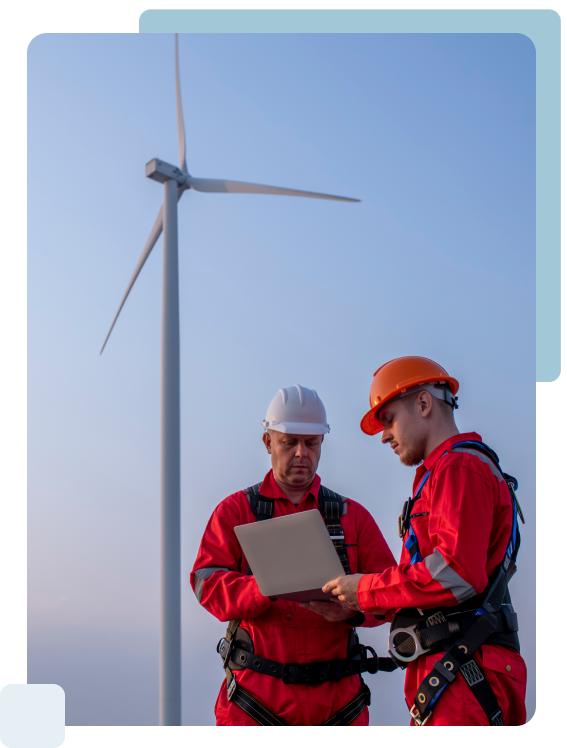
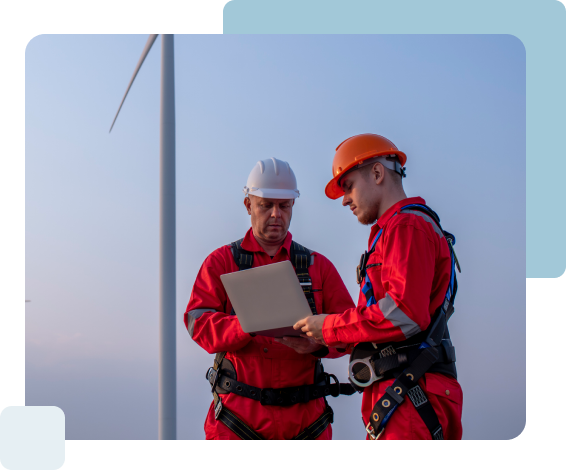
Disciplines we recruit for
From business support through to technical and specialist roles, we recruit across a wide scope of disciplines to help organisations build strong, capable teams, and support job seekers in finding opportunities that match their skills and career goals.

